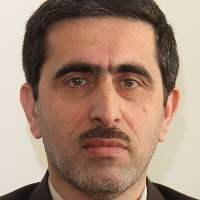Analyzing the relationship between social health, communication skills and life with women's social security
Author(s):
Article Type:
Research/Original Article (بدون رتبه معتبر)
Abstract:
Women, as half of human resources in societies, are an effective factor in advancing the goals of society and the family. Studies show that women are more vulnerable than men to discrimination and reduced social security, which is one of the most fundamental aspects of life in today's society. Therefore, the present study was conducted to analyze the relationship between social health, communication skills and life skills with women's social security. The method used in this study was descriptive-correlational. The statistical population of the study was all women referring to the affairs of martyrs and martyrs. Based on Krejcie and Morgan table, 250 people were selected by convenience sampling. The required data were collected using the questionnaires of social security sense of Sahabi (2010), social health of Keys (1998), communication skills of lawyer and colleagues (2012) and deductive life skills and data analysis using Analysis of variance and multiple regression analysis were performed. The results showed; Social health dimensions are able to predict changes in women's social security. In addition, the variable of social participation has a greater effect on social security. Also, the dimensions of communication skills are able to predict changes in social security and the variable of interpretation and clarity of the audience's speech has a greater effect on social security. Women, as half of human resources in societies, are an effective factor in advancing the goals of society and the family. Studies show that women are more vulnerable than men to discrimination and reduced social security, which is one of the most fundamental aspects of life in today's society. Therefore, the present study was conducted to analyze the relationship between social health, communication skills and life skills with women's social security. The method used in this study was descriptive-correlational. The statistical population of the study was all women referring to the affairs of martyrs and martyrs. Based on Krejcie and Morgan table, 250 people were selected by convenience sampling. The required data were collected using the questionnaires of social security sense of Sahabi (2010), social health of Keys (1998), communication skills of lawyer and colleagues (2012) and deductive life skills and data analysis using Analysis of variance and multiple regression analysis were performed. The results showed; Social health dimensions are able to predict changes in women's social security. In addition, the variable of social participation has a greater effect on social security. Also, the dimensions of communication skills are able to predict changes in social security and the variable of interpretation and clarity of the audience's speech has a greater effect on social security.
Keywords:
Language:
Persian
Published:
Journal of Social Psychology, Volume:9 Issue: 61, 2021
Pages:
151 to 167
https://www.magiran.com/p2369015
سامانه نویسندگان
مقالات دیگری از این نویسنده (گان)
-
A Systematic Study of the Philosophical-Social Foundations of the Electronic Curriculum in the Context of Medical Education
, Azadeh Mozayani Monfared, Masoomeh Seidi*, Seyyed Mohammad Masoumi, Majid Sharifi Rahnemo
The Journal of Medical Education and Development, -
The Curriculum of Iran: Emphasizing Citizenship Education
Saeid Sharifi Rahnmo, Seyed Mohammad Masoumi, Majid Sharifi Rahnmo *
Journal of Public Law knowledge, -
Effectiveness of Marital Enrichment Package Based on Islamic Teachings on Couples' Marital Satisfaction
Mojtaba Satkin, Seyyed Abolghasem Mehrinejad *, Nemat Sotodehasl, Hasan Asadzadeh
Biannual Peer Review Journal of Clinical Psychology & Personality, -
Comparing the Effectiveness of Educational Program Based on Response to Intervention and Sensory-motor Integration Intervention on the Cognitive Rhythm of Students with Learning Disabilities
Mohadeseh Kargar Motlagh, Faezeh Jahan*, Hasan Asad Zadeh
Journal of Exceptional Children,



